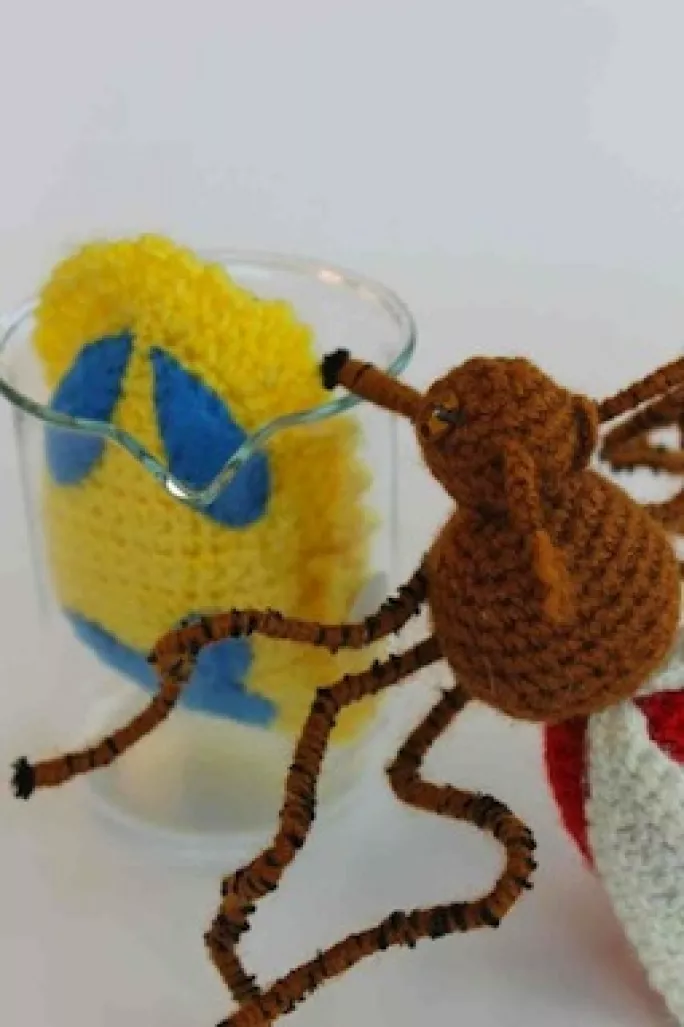Knitting and parasites: two words with little apparent kinship. The mind boggles at the idea of a giant leech struggling to get its mandible around a brioche stitch, or a mediocre crochet enthusiast stealing a superior rival’s tea-cosy design and claiming it as her own at a Women’s Institute crafting contest.
But the two now have more in common than you might think, thanks to a new educational project. Crafted Micro Critters is an international scheme to get schools raising awareness in tropical countries about the dangers that parasites pose to humans.
The idea is this: scientists at the University of Glasgow are asking schools - and anyone else who is interested - to create knitted bugs, which will be sent around the world for use as educational resources and ice-breakers.
The finished parasites are little woollen masterpieces, says project lead Dr Mhairi Stewart, including biologically accurate leeches and life-size tapeworms. They will be donated to schools and hospitals, mainly in Africa, to help teach people about the creatures, the diseases they cause and how to avoid them.
Dr Stewart, a passionate advocate of public engagement in science based at the Wellcome Trust Centre For Molecular Parasitology, is hoping for hundreds of parasites. Teachers can download knitting, crocheting and felting patterns for different parasites, and the varying difficulty of designs ensures that all ages can get involved.
All contributors will be listed on an online hall of fame. “And, as far as we can, we will let people know what happens to their parasites,” says Dr Stewart.
Dr Stewart is running the project with PhD students Catarina Marques, Rebecca Devlin and Robyn Kent, with funding from the Royal College of Pathologists, the University of Glasgow New Initiatives Fund, the Society for General Microbiology, and in partnership with the Glasgow Science Festival.




